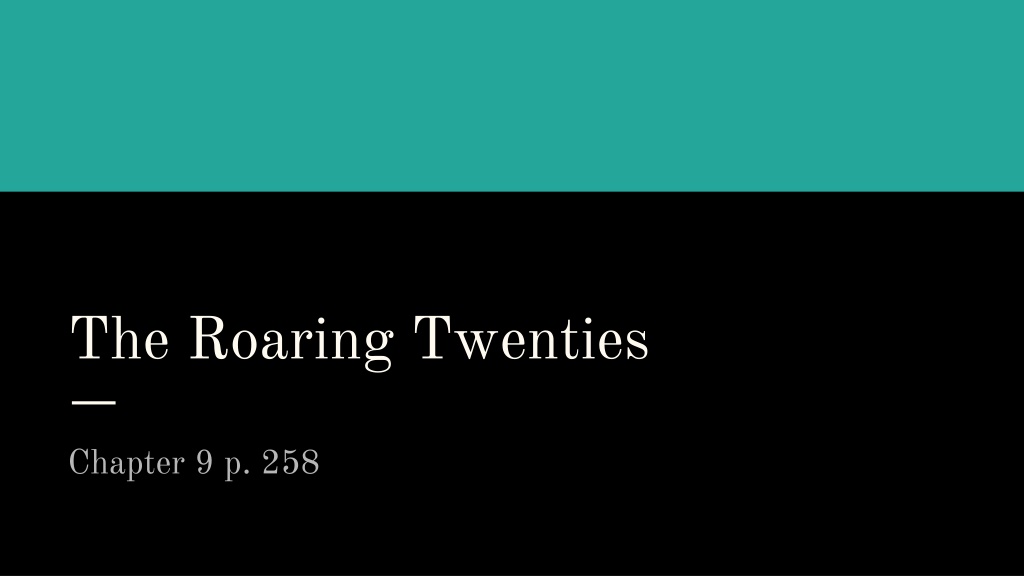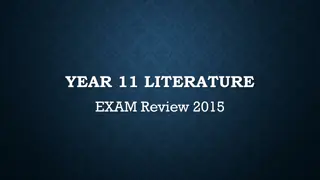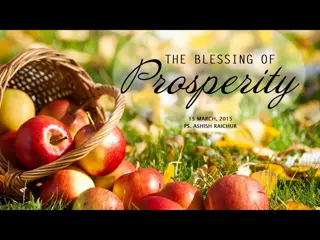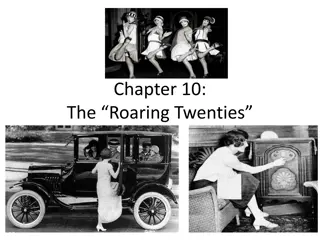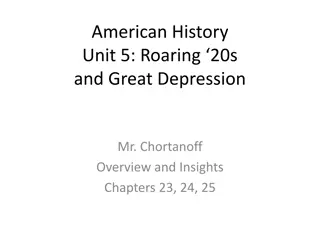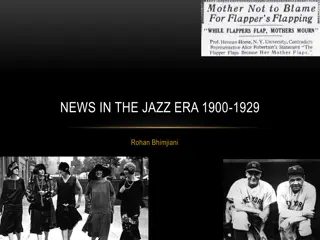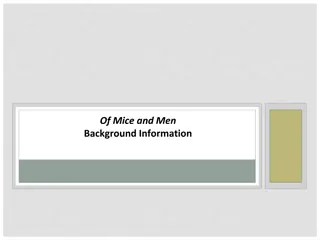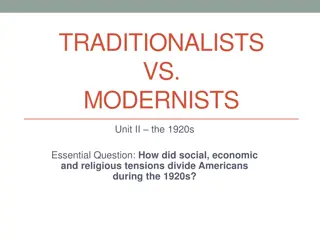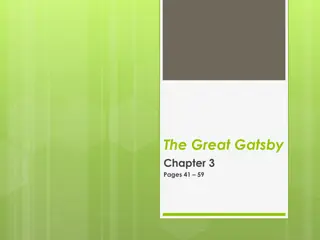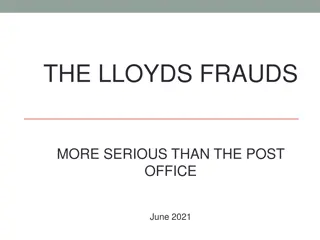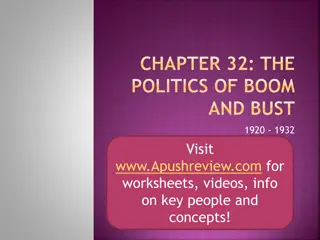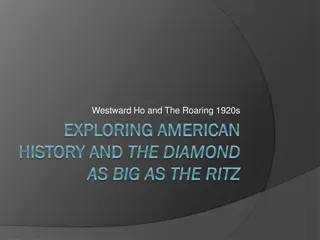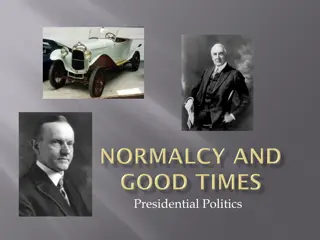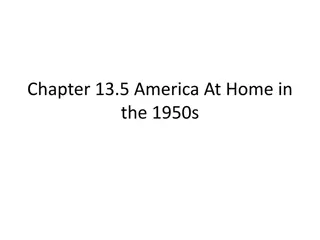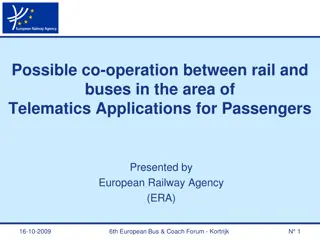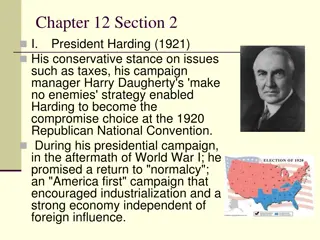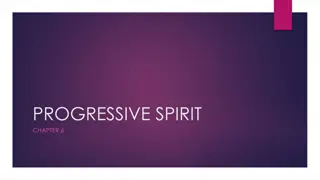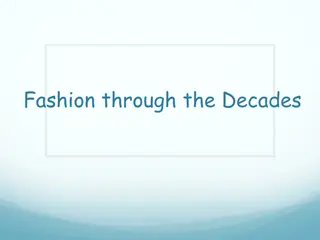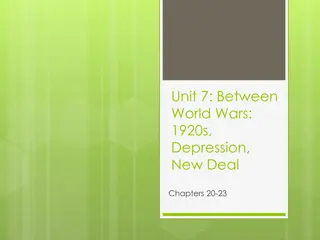The Roaring Twenties: Era of Prosperity and Scandals
The 1920s in America saw a mix of economic prosperity under Presidents Harding and Coolidge, marked by tax cuts, job growth, and the rise of new products like cars and appliances. However, this era was also tainted by scandals such as the Teapot Dome Scandal, raising questions about government integrity. Despite the challenges, the decade was characterized by booming businesses and societal transformations.
Download Presentation

Please find below an Image/Link to download the presentation.
The content on the website is provided AS IS for your information and personal use only. It may not be sold, licensed, or shared on other websites without obtaining consent from the author. Download presentation by click this link. If you encounter any issues during the download, it is possible that the publisher has removed the file from their server.
E N D
Presentation Transcript
The Roaring Twenties Chapter 9 p. 258
9.1 Boom Times Main Ideas: President Harding promised a return to peace and prosperity. Calvin Coolidge supported a pro business agenda. American business boomed in the 1920 s. In 1928, Americans elected Herbert Hoover, hoping he would help good financial times continue. Key Terms & People: Warren Harding, Calvin Coolidge, Teapot Dome scandal, Kellogg-Briand Pact, Model T, moving assembly line, Herbert Hoover
Return to Peace and Prosperity After WWI, many working and farming contracts were not needed and cancelled. Unemployment rates increased and prices soared. Citizens blamed Democrats since Pres Wilson was a Dem. Coolidge was the VP. The decade began with hard times in America. New election: Harding promised to return US to stability and prosperity ( normalcy ) and he won with more than 60% votes. He gave tax cuts to the wealthy business owners so that they would hire more Americans and begin to invest in new businesses and jobs. This led to an economic boom that lasted most the decade.
Teapot Dome Scandal Harding appointed many trusted friends to high govt positions. He said, I have no trouble with my enemies. But my friends keep me walking the floor at night . This scandal caused Americans to question the judgment and honesty of our govt One friend was convicted of bribery-he accepted money and gifts from oil companies and in exchange, allowed oil companies to control govt oil reserves in California and Teapot Dome, Wyoming. Political Cartoon p. 263
Coolidges Probusiness Administration Pres Harding unexpectedly dies so VP Coolidge took charge. He was an honest and trustworthy leader that restored confidence in Americans. He fired everyone involved in bribery scandals. Declared the business of America is business and expanded Harding s business policies Kellogg-Briand Pact was 62 countries signed in agreement to outlaw war- impossible to enforce but was symbolic to commitment peace
Business Booms Policies and tax cuts worked. Rapid economic growth! Manufacturing nearly doubled Jobs and wages increased People bought new products Many new products changed the way Americans lived
New Products = Prosperity in America Cars-Ford Model T (affordable car) made on assembly line required tires, windows, insurance, repair shops. Govt paved roads and built bridges. Gas stations scattered across the country. Assembly line paid well with short hours but was repetitive boring work Electricity-most Americans had electricity by the end of the decade. Appliances- vacuum, washing machine and refrigerator decreased chore time. These were referred to as the greatest gift to the modern housewife. Advertisements-Companies competed to sell their product on the radio and in magazines/newspapers
Hoover Elected Pres Coolidge chose not to run again for President Alfred Smith ran against Hoover but many Americans feared his strong faith (Catholic) interfere with govt-first Catholic considered for Pres Republicans supported Herbert Hoover to maintain economic prosperity & continue the economic boom. He stated that we in America today are nearer to the final triumph over poverty than ever before in the history of any land .
9.2 Life during the 20s Main Ideas: Many young people found new independence in a changing society. Postwar tensions occasionally led to fear and violence. Competing ideals caused conflict between Americans with traditional beliefs and those with modern beliefs. Following the war, minority groups organized to demand their civil rights. Key Terms & People: flappers, Red Scare, 21 Amendment, fundamentalism, Scopes trial, Great Migration, Marcus Garvey
Changing Society Before now, most young people worked at home until they married. After seeing the world , young people sought more independence-moved to cities, partied at dance clubs, listened to music and drove fast cars High school and college attendance soared - including women Women continued to work and join politics Flappers were considered scandalous-cut hair short, wore makeup, wore short dresses and openly challenged traditional behaviors- seen dancing the Charleston. Magazines, advertisements, and movies promoted the flapper lifestyle.
The RED Scare Red is typically referring to communists and since Russia adopted communism in 1917, many Americans feared it spreading to the US Bombs being mailed to important people were blamed on reds Anarchist (belief in no govt) & immigrants Sacco and Vanzetti were convicted of robbery & murder with no evidence. American Civil Liberties Union (ACLU) founded in 1920 to defend people s civil rights unsuccessfully defended them. They were executed.
Restricting Immigration Dramatic drop in immigration due to new laws Emergency Quota Act of 1921-limited total number of immigrants allowed in US National Origins Act of 1924- banned East Asia immigration entirely Americans feared foreigners and radical ideas more than ever before. Different age groups had significantly different opinions.
Prohibition Very difficult to enforce. Illegal bars called speakeasies broke the law along with gangsters and political corruption. Chicago Al Scarface Capone gained control of illegal alcohol trade by murdering his rivals. He earned more than $60M a year off crime. Without govt supervision over alcohol production, alcohol became more dangerous and criminal so the 21st Amendment ended prohibition
Religious Ideals Fundamentalism was created by religious groups stressing interpretation of the Bible-feared changes when prohibition ended. It was stronger in rural areas. They disagreed with Darwin s theories of evolution. Laws restricted this teaching. Scopes Trial-(TN, 1925)-Science teacher taught evolution and was convicted-forced to pay $100 See Picture p. 272 Lawyers debated science, faith, and free speech
Minority Rights Great Migration-time after WWI when large groups of African Americans left the south to take jobs in northern factories Other African Americans remained and chose to strengthen their culture in the south. Marcus Garvey encouraged black nationalism- when peers to express pride in their culture and establish economic independence by building businesses and communities. 1924 the Indian Citizenship Act granted citizenship to all Native Americans-after fighting as non citizens of the US Hispanic Americans formed United Latin American Citizens (LULAC)-worked to end unfair treatment
9.3 Radios Americans shared common experiences through radio broadcasts-changed culture 1st broadcast in 1920 announced the election of Pres Harding. National Broadcast Company (NBC) allowed Americans to hear music, news, weather reports, bedtime stories, sports, and political speeches without leaving their home. Advertisements helped businesses Farmers predicted they may one day actually be able to listen to the President of the United States (lol)
National Heroes Movies (talkies) were very popular. 1927 was the first movie with sound & first full length feature (Jazz Singer)-Americans copied fashion of movie stars Baseball attracted many Americans-watched Babe Ruth break records. African American League was created due to segregation-Jackie Robinson broke records Pilots like Charles Lindbergh & Amelia Earhart dared flying solo across the Atlantic Ocean Sigmund Freud became popular as he introduced psychoanalysis-defining human behavior as stimulus and response (cause & effect)
Music Jazz Age developed from New Orleans Roaring Twenties was an explosion in the popularity of jazz music Dance crazes swept nation teaching the Charleston, the Toddle, and the Shimmy Louis Armstrong played the trumpet as a solo-first to leave the band as a soloist musician
Writers Harlem (NY) Renaissance-period of African American artistic accomplishment. Langston Hughes & others produced poetry and plays about African American life. Ernest Hemingway wrote short stories and novels about disillusionment of US-part of the lost generation which was a group of writers that criticized US. Many of them left the US as expatriates. F Scott Fitzgerald wrote Great Gatsby that focuses on the loss of morality Sinclair Lewis was the 1st American to receive the Nobel Peace Prize in literature
Artists Georgia O Keefe (p. 279) experimented with new art styles-known for flower paintings Architects introduced art deco in buildings which had clean, sharp lines that resembled machines-still visible today
TEST TIME! Complete, check and study review p. 287-288 Main Ideas & vocab Read chapter at home if needed Practice Quizlet
